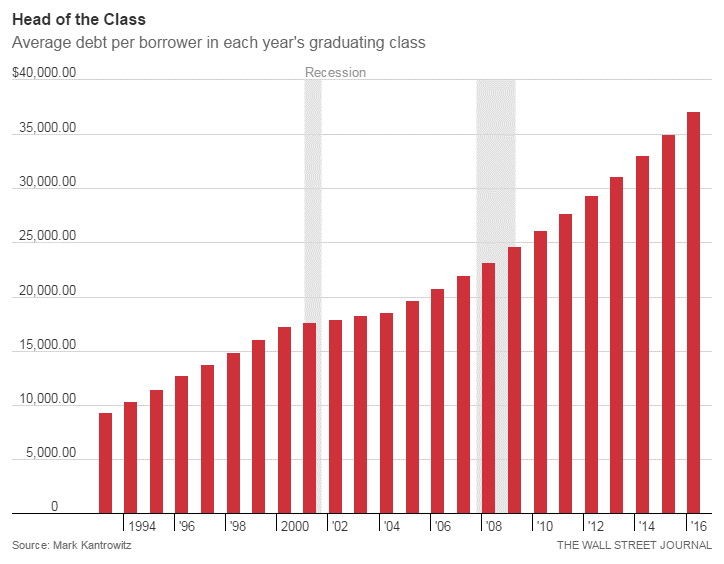These days, paying for a college education is one of the biggest outlays a family will make, after their home mortgage. With school back in session, this is a great time to remind your clients to plan for college for their children and grandchildren—and the sooner, the better.
Because many parents are sacrificing their own retirement to pay college costs, this recent segment on CNBC encourages parents to start planning when kids are toddlers: “In retirement, there are no options if you don’t save for yourself first.”
Here are some facts you can share with your clients:
1. The cost of college has skyrocketed
The Department of Education says, “College has never been more expensive…over the last three decades, tuition at four-year colleges has more than doubled, even after adjusting for inflation.” But it’s still one of the most important investments you can make for your children in terms of their future success.
For the 2015-16 school year, the College Board estimated the average tuition and fees to be $9,410 per year at four-year, in-state public institutions. Room and board are about $10,140 annually. The average cost of a bachelor’s degree ranges from $52,000-$130,000, depending on in-state vs. out-of-state status, a public vs. a private university, whether community college was attended first, and whether or not housing and food were provided.
2. There are recent changes to FAFSA
Students college-bound for the 2017-2018 school year, as well as students already on campus, have an important date change for FAFSA (The Free Application for Federal Student Aid) this year. The application was changed from January 1, 2017 to October 1, 2016–and 2015 tax data has to be used.
Even if you think your family makes too much money to qualify for aid, most experts say you should apply anyway, because most colleges, state scholarship agencies, and foundations use the FAFSA in deciding who gets their scholarship money, as well as how much money each student will receive.
3. Student debt is rising
Student debt is a $140 billion-a-year industry, with 42 million Americans bearing $1.3 trillion in student debt. The federal government holds 93% of these outstanding student loans, making the Department of Education, in essence, one of the world’s largest banks. The average class of 2016 graduate with a student loan will owe more than $37,172, the highest level of debt yet. Almost 71% of bachelor’s degree recipients will graduate with a student loan, compared with less than 50% two decades ago.

Source: Wall Street Journal
4. Sacrificing retirement savings is a bad idea
A recent survey of parents by HSBC Group found that 98% of U.S. parents are considering a college education for their child—and 60% would be willing to go into debt to fund it. Although parents say this makes it difficult to keep up with other financial commitments, they still think it’s more important than long-term savings or credit card repayment. And 37% of U.S. parents say their children’s education is more important than their own retirement savings.
Commenting on the findings, HSBC’s Global Head of Wealth Management said:
“The financial sacrifices that parents are willing to make to fund their children’s education are proof of the unquestioning support they will give to help them achieve their ambitions. However, parents need to make sure that this financial investment is not made to the detriment of their own future well-being.
“By having a financial plan to meet their family’s overall needs and reviewing it regularly, parents will be better placed to support their children’s studies without compromising on their own long-term financial goals.”
Quantum has some ideas which may help your clients pay college costs for their children and grandchildren. Call us to learn more at 800.440.1088.
This article is for informational and educational purposes and is not designed, nor intended, to be applicable to any person’s individual circumstances. It should not be considered as investment advice, nor does it constitute a recommendation that anyone engage in (or refrain from) a particular course of action. The Quantum Group, and its affiliates, have a financial interest in the sale of their products.
FOR FINANCIAL PROFESSIONAL USE ONLY – NOT FOR USE WITH THE PUBLIC


